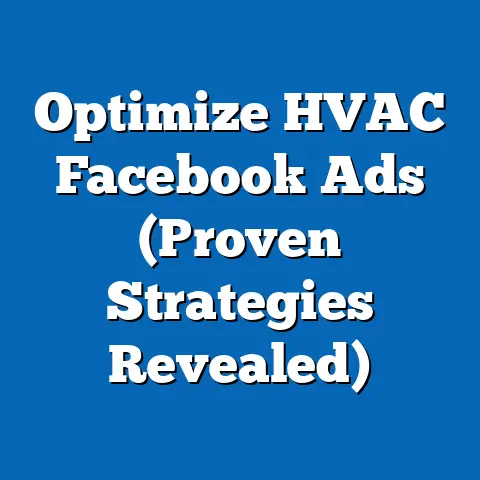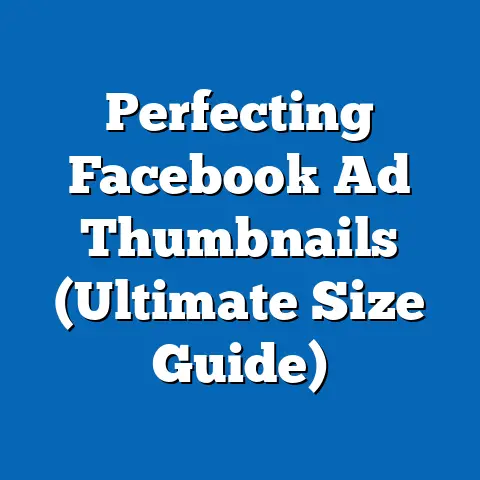Boost Law Firm’s Reach on Facebook (Proven Strategies)
Is your law firm getting lost in the digital noise, or are you leveraging Facebook to its full potential to connect with clients?
In today’s competitive legal landscape, a strong online presence is no longer optional – it’s essential.
And Facebook, with its billions of active users, offers an unparalleled opportunity for law firms to build brand awareness, generate leads, and cultivate lasting relationships with potential clients.
I’ve seen firsthand how a well-executed Facebook strategy can transform a law firm’s visibility and client base.
It’s not just about posting updates; it’s about understanding your audience, crafting compelling content, and strategically using Facebook’s powerful advertising tools.
Let’s dive into the proven strategies that will help your law firm thrive on Facebook.
The Importance of Facebook for Law Firms
In 2024, Facebook isn’t just a social media platform; it’s a digital powerhouse where potential clients are actively seeking information and solutions.
Think about it: when someone needs legal advice, where do they start?
Often, it’s a quick search online, and Facebook is increasingly becoming a part of that initial research process.
Here’s why Facebook is crucial for law firms:
- Massive User Base: With over 3 billion monthly active users, Facebook provides an unparalleled reach.
Your target audience is almost certainly on Facebook. - Demographic Diversity: Facebook’s user base is diverse, spanning various age groups, income levels, and interests.
This allows you to target specific demographics relevant to your practice areas. - High Engagement Rates: People spend an average of 34 minutes per day on Facebook, engaging with content, connecting with friends, and discovering new businesses.
- Brand Awareness: Consistent, engaging content helps build brand recognition and establishes your firm as a trusted authority in the legal field.
- Lead Generation: Facebook offers various tools, including lead generation ads and targeted content, to capture potential client information and nurture leads.
- Community Building: Facebook allows you to create a community around your firm, fostering relationships with clients and prospects through discussions, Q&A sessions, and exclusive content.
According to recent statistics, businesses with a strong social media presence are 58% more likely to attract new clients.
Moreover, legal firms that actively engage on Facebook report a 40% increase in client inquiries.
This highlights the potential ROI of investing in a robust Facebook marketing strategy.
Takeaway: Facebook is a vital platform for law firms to build brand awareness, engage with potential clients, and generate leads.
Don’t underestimate its power in today’s digital landscape.
Understanding Your Audience
Before you start posting content and running ads, it’s crucial to understand who you’re trying to reach.
Defining your target audience is the foundation of any successful Facebook marketing strategy.
Here’s how to identify your ideal client on Facebook:
- Identify Your Niche: What areas of law does your firm specialize in?
Are you focused on personal injury, family law, business law, or something else?
Each practice area attracts a different type of client. - Demographic Data: Consider the age, gender, location, income level, and education level of your ideal client.
For example, if you specialize in estate planning, your target audience might be older adults with significant assets. - Pain Points and Needs: What are the challenges and concerns that your potential clients face?
What questions are they asking?
What problems are they trying to solve?
Understanding their pain points will help you create content that resonates with them. - Interests and Behaviors: What are your ideal clients interested in?
What websites do they visit?
What groups do they belong to on Facebook?
This information can help you target your ads and content more effectively.
Tools to Gather Data:
- Facebook Insights: This built-in tool provides valuable data about your existing audience, including demographics, engagement rates, and page views.
- Facebook Audience Insights: This tool allows you to explore potential audiences based on demographics, interests, and behaviors.
- Surveys and Polls: Conduct surveys or create polls on your Facebook page to gather direct feedback from your audience.
- Competitor Analysis: Analyze your competitors’ Facebook pages to see who they’re targeting and what content they’re posting.
For example, a law firm specializing in personal injury might target Facebook users who have recently liked pages related to car accidents, medical malpractice, or workers’ compensation.
They might also target users who have expressed interest in legal advice or personal injury attorneys.
Takeaway: Defining your target audience is crucial for creating relevant content and targeting your ads effectively.
Use Facebook Insights, surveys, and competitor analysis to gather valuable data.
Crafting Compelling Content
Once you understand your audience, it’s time to create content that resonates with them.
The key is to provide value, build trust, and establish your firm as a trusted authority in the legal field.
Here are some content types that work well for law firms on Facebook:
- Informative Articles: Share articles on relevant legal topics, providing insights and advice that potential clients can use.
- Video Testimonials: Feature video testimonials from satisfied clients, highlighting their positive experiences with your firm.
- FAQs: Answer frequently asked questions about common legal issues, addressing potential clients’ concerns and misconceptions.
- Case Studies: Share anonymized case studies showcasing successful outcomes you’ve achieved for your clients.
- Behind-the-Scenes Content: Give your audience a glimpse into the daily operations of your firm, humanizing your brand and building trust.
- Live Q&A Sessions: Host live Q&A sessions with your attorneys, answering questions from the audience in real-time.
- Infographics: Create visually appealing infographics summarizing complex legal topics in an easy-to-understand format.
- Blog Posts: Share excerpts from your law firm’s blog, driving traffic to your website and providing valuable content.
Engaging Post Formats:
- Stories: Use Facebook Stories to share quick updates, behind-the-scenes content, and interactive polls.
- Polls: Ask your audience questions related to legal topics, sparking discussions and gathering valuable insights.
- Live Video: Host live Q&A sessions, webinars, or interviews with legal experts.
- Carousel Ads: Showcase multiple images or videos in a single ad, highlighting different aspects of your firm’s services.
Using Clear and Accessible Language:
One of the biggest challenges for law firms is communicating complex legal concepts in a way that potential clients can understand.
Avoid using jargon or technical terms that might confuse or intimidate your audience.
Instead, use clear, concise language that demystifies legal issues and makes them more accessible.
For example, instead of saying “We specialize in tort law,” you could say “We help people who have been injured due to someone else’s negligence.”
Takeaway: Create valuable, engaging content that resonates with your target audience.
Use clear, accessible language and experiment with different post formats to see what works best.
Leveraging Facebook Ads
While organic content is important, Facebook Ads can significantly amplify your reach and generate leads.
Facebook’s sophisticated targeting options allow you to reach specific demographics, interests, and behaviors, ensuring that your ads are seen by the right people.
Here are some key aspects of Facebook Ads for law firms:
- Ad Formats:
- Image Ads: Simple and effective, image ads are great for showcasing your brand and driving traffic to your website.
- Video Ads: Video ads are highly engaging and can be used to tell your firm’s story, share client testimonials, or explain complex legal concepts.
- Carousel Ads: Carousel ads allow you to showcase multiple images or videos in a single ad, highlighting different aspects of your firm’s services.
- Lead Generation Ads: Lead generation ads make it easy for potential clients to submit their contact information directly from the ad, allowing you to capture leads quickly and efficiently.
- Instant Experience Ads: These full-screen ads provide an immersive experience for users, allowing you to showcase your firm’s expertise and services in a visually compelling way.
- Targeting Options:
- Location: Target users based on their location, focusing on the areas where your firm operates.
- Demographics: Target users based on age, gender, education level, and income level.
- Interests: Target users based on their interests, such as legal advice, personal injury, or business law.
- Behaviors: Target users based on their online behavior, such as recent purchases, website visits, or engagement with specific Facebook pages.
- Custom Audiences: Create custom audiences based on your existing client list, website visitors, or Facebook page engagement.
- Lookalike Audiences: Create lookalike audiences based on your custom audiences, targeting users who share similar characteristics with your existing clients.
- Budgeting and Bidding:
- Daily Budget: Set a daily budget for your ads, controlling how much you spend each day.
- Lifetime Budget: Set a lifetime budget for your ads, controlling how much you spend over the entire duration of the campaign.
- Bidding Strategies: Choose from different bidding strategies, such as cost per click (CPC) or cost per impression (CPM), depending on your goals.
- Ad Copy and Creative:
- Headline: Use a compelling headline that grabs attention and clearly communicates the value of your firm’s services.
- Description: Write a concise description that highlights the benefits of working with your firm and encourages users to take action.
- Call-to-Action: Use a clear call-to-action, such as “Learn More,” “Contact Us,” or “Get a Free Consultation,” to encourage users to engage with your ad.
- Image Ads: Simple and effective, image ads are great for showcasing your brand and driving traffic to your website.
- Video Ads: Video ads are highly engaging and can be used to tell your firm’s story, share client testimonials, or explain complex legal concepts.
- Carousel Ads: Carousel ads allow you to showcase multiple images or videos in a single ad, highlighting different aspects of your firm’s services.
- Lead Generation Ads: Lead generation ads make it easy for potential clients to submit their contact information directly from the ad, allowing you to capture leads quickly and efficiently.
- Instant Experience Ads: These full-screen ads provide an immersive experience for users, allowing you to showcase your firm’s expertise and services in a visually compelling way.
- Location: Target users based on their location, focusing on the areas where your firm operates.
- Demographics: Target users based on age, gender, education level, and income level.
- Interests: Target users based on their interests, such as legal advice, personal injury, or business law.
- Behaviors: Target users based on their online behavior, such as recent purchases, website visits, or engagement with specific Facebook pages.
- Custom Audiences: Create custom audiences based on your existing client list, website visitors, or Facebook page engagement.
- Lookalike Audiences: Create lookalike audiences based on your custom audiences, targeting users who share similar characteristics with your existing clients.
- Daily Budget: Set a daily budget for your ads, controlling how much you spend each day.
- Lifetime Budget: Set a lifetime budget for your ads, controlling how much you spend over the entire duration of the campaign.
- Bidding Strategies: Choose from different bidding strategies, such as cost per click (CPC) or cost per impression (CPM), depending on your goals.
- Headline: Use a compelling headline that grabs attention and clearly communicates the value of your firm’s services.
- Description: Write a concise description that highlights the benefits of working with your firm and encourages users to take action.
- Call-to-Action: Use a clear call-to-action, such as “Learn More,” “Contact Us,” or “Get a Free Consultation,” to encourage users to engage with your ad.
Example:
A law firm specializing in family law might run a lead generation ad targeting Facebook users in their local area who have recently changed their relationship status to “divorced” or “separated.” The ad could offer a free consultation to discuss their legal options and provide guidance on navigating the divorce process.
Takeaway: Facebook Ads offer powerful targeting options and various ad formats to reach potential clients and generate leads.
Experiment with different strategies and closely monitor your results to optimize your campaigns.
Building a Community
Building a community around your law firm on Facebook can foster loyalty, generate referrals, and establish your firm as a trusted resource in the legal field.
Here are some strategies for building a thriving community:
- Create a Facebook Group: Create a Facebook Group specifically for clients and potential clients, providing a platform for them to ask questions, share experiences, and connect with each other.
- Encourage Engagement: Ask questions, run polls, and host discussions to encourage members to participate in the group.
- Provide Value: Share informative articles, legal tips, and resources that are relevant to the group’s members.
- Moderate the Group: Actively moderate the group to ensure that discussions remain respectful and on-topic.
- Host Events: Host online or in-person events for group members, such as webinars, workshops, or networking events.
- Offer Exclusive Content: Provide exclusive content, such as discounts, early access to events, or behind-the-scenes content, to reward members for their participation.
For example, a law firm specializing in business law might create a Facebook Group for entrepreneurs and small business owners, providing a forum for them to discuss legal issues, share best practices, and connect with each other.
The firm could host regular webinars on topics such as contract law, intellectual property, and business formation.
Takeaway: Building a community on Facebook can foster loyalty, generate referrals, and establish your firm as a trusted resource.
Create a Facebook Group, encourage engagement, and provide valuable content to build a thriving community.
Analyzing Performance Metrics
Tracking and analyzing your Facebook page and ad performance is crucial for optimizing your strategies and maximizing your ROI.
Here are some key performance indicators (KPIs) to monitor:
- Engagement Rate: The percentage of users who have interacted with your content, such as liking, commenting, or sharing.
- Reach: The number of unique users who have seen your content.
- Impressions: The number of times your content has been displayed.
- Click-Through Rate (CTR): The percentage of users who have clicked on your links or ads.
- Conversion Rate: The percentage of users who have taken a desired action, such as submitting a lead form or contacting your firm.
- Cost Per Click (CPC): The amount you pay each time someone clicks on your ad.
- Cost Per Lead (CPL): The amount you pay for each lead generated through your ads.
- Return on Ad Spend (ROAS): The amount of revenue generated for every dollar spent on ads.
Tools for Analysis:
- Facebook Analytics: This built-in tool provides detailed data about your page and ad performance, including demographics, engagement rates, and conversion rates.
- Google Analytics: This tool allows you to track website traffic from Facebook and measure the effectiveness of your campaigns.
- Third-Party Analytics Tools: Various third-party analytics tools offer advanced features and insights, such as competitor analysis and social listening.
For example, if you notice that your engagement rate is low, you might need to experiment with different types of content or post formats.
If your cost per lead is high, you might need to refine your targeting or improve your ad copy.
Takeaway: Track and analyze your Facebook page and ad performance to optimize your strategies and maximize your ROI.
Use Facebook Analytics, Google Analytics, and third-party tools to gather valuable insights.
Case Studies and Success Stories
To illustrate the power of Facebook marketing for law firms, let’s look at some real-life examples:
Case Study 1: Personal Injury Law Firm
- Challenge: A personal injury law firm in a competitive market struggled to generate leads and build brand awareness.
- Strategy: The firm created a Facebook page and began posting informative articles, video testimonials, and FAQs about personal injury law.
They also ran lead generation ads targeting users who had recently liked pages related to car accidents, medical malpractice, and workers’ compensation. - Results: Within six months, the firm’s Facebook page had gained over 1,000 followers, and they were generating an average of 20 leads per month through their ads.
They also saw a significant increase in website traffic and client inquiries.
Case Study 2: Family Law Firm
- Challenge: A family law firm wanted to build a community around their practice and foster relationships with potential clients.
- Strategy: The firm created a Facebook Group for individuals going through divorce or separation, providing a forum for them to ask questions, share experiences, and connect with each other.
They also hosted regular webinars on topics such as child custody, alimony, and property division. - Results: The Facebook Group quickly grew to over 500 members, and the firm saw a significant increase in referrals and client inquiries from group members.
They also established themselves as a trusted resource in the family law field.
Case Study 3: Business Law Firm
- Challenge: A business law firm wanted to reach entrepreneurs and small business owners and generate leads for their services.
- Strategy: The firm created a series of carousel ads showcasing their expertise in contract law, intellectual property, and business formation.
They targeted their ads to Facebook users who had expressed interest in entrepreneurship, small business, and legal advice. - Results: The firm’s carousel ads generated a high click-through rate and a low cost per lead.
They were able to generate a significant number of qualified leads and convert them into paying clients.
Takeaway: These case studies demonstrate the potential of Facebook marketing for law firms.
By implementing the strategies discussed in this article, you can boost your reach, generate leads, and build a thriving community around your practice.
Conclusion
Facebook is an essential platform for law firms looking to expand their reach and connect with clients in 2024.
By understanding your audience, crafting compelling content, leveraging Facebook Ads, building a community, and analyzing performance metrics, you can create a successful Facebook marketing strategy that drives results.
Don’t let your law firm get lost in the digital noise.
Take the first step in implementing these proven strategies and start leveraging Facebook to its full potential today!
I encourage you to start by:
- Auditing your current Facebook presence: What’s working? What’s not?
- Defining your target audience: Who are you trying to reach?
- Creating a content calendar: Plan out your posts for the next month.
- Experimenting with Facebook Ads: Start with a small budget and test different targeting options and ad formats.
By taking these steps, you’ll be well on your way to boosting your law firm’s reach on Facebook and connecting with clients in a meaningful way.
Good luck!






